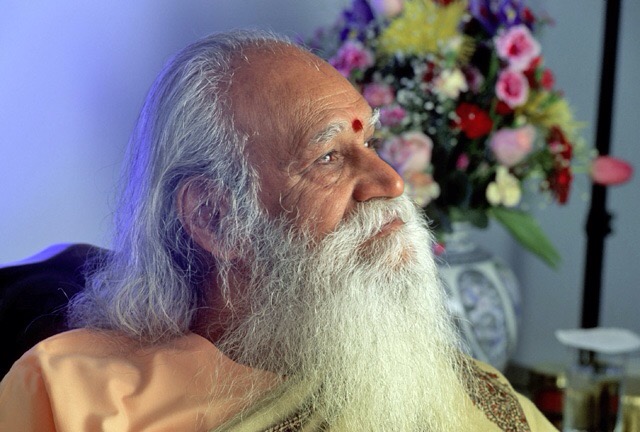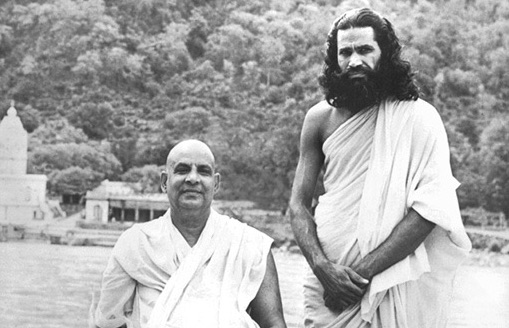The Integral Yoga Institute of San Francisco, founded by Sri Swami Satchidananda, is a non-profit, interfaith organization dedicated to serving the community through living and sharing the classical teachings of Yoga, making the teachings accessible, and cultivating peace and harmony among all people.
 THE INTEGRAL YOGA PATH, as taught by Sri Swami Satchidananda, offers a synthesis of
THE INTEGRAL YOGA PATH, as taught by Sri Swami Satchidananda, offers a synthesis of
the branches of Yoga, fostering the harmonious development of every aspect of the individual. Integral Yoga sadhana (spiritual practice) is based on six branches of Yoga: Hatha, Raja, Bhakti, Karma, Jnana, and Japa. These elements work together as a complete system, guiding practitioners toward the ultimate goal of Integral Yoga. In this classical approach, Yoga becomes a journey of personal transformation culminating in the highest spiritual realization. As we progress toward the goal of Integral Yoga, we integrate the fruits of our sadhana into daily life, which becomes ever more easeful, peaceful, and useful.
THE GOAL OF INTEGRAL YOGA
“The goal of Integral Yoga, and the birthright of every individual, is to realize the spiritual unity behind all the diversities in the entire creation and to live harmoniously as members of one universal family. This goal is achieved by maintaining our natural condition of a body of optimum health and strength; senses under total control; a mind well-disciplined, clear and calm; an intellect as sharp as a razor; a will as strong and pliable as steel; a heart full of unconditional love and compassion; an ego as pure as crystal; and a life filled with supreme peace and joy.”
–Sri Swami Satchidananda
THE BRANCHES OF INTEGRAL YOGA
Hatha Yoga
Purifies, balances and relaxes the body, leading to increased flexibility and strength, which enhances the functioning of all body systems and brings an overall sense of peace and well-being. The asanas (postures), pranayama (breath regulation), bandhas (locks), mudras (seals), kriyas (cleansing practices), Yoga Nidra (deep relaxation), and a yogic diet help harmonize the dynamic energies within us, fostering physical vitality, mental clarity, and emotional equilibrium. The Integral Yoga Hatha approach provides a solid foundation for delving deeper into the practice of other branches.
Raja Yoga
Offers profound insight into the mind and its mysteries through a time-tested and balanced set of spiritual practices grounded in ethical principles. This branch utilizes the eight limbs of Yoga outlined in the Yoga Sutras of Patanjali, and provides clear guidance for cultivating a consistent meditation practice. By diligently practicing these limbs, we can achieve self-mastery and the fruition of spiritual growth. Raja Yoga serves as a comprehensive roadmap for inner transformation, guiding us toward a deeper understanding of ourselves and the realization of our highest potential.
Bhakti Yoga
Inspires the opening of the spiritual heart through devotional practices such as kirtan (chanting), puja (worship), and prayer, fostering an unwavering love, devotion, and dedication to the Divine. By transforming emotions into a vehicle for unconditional love, this branch of Yoga nurtures a deep, heartfelt relationship with the Divine. These practices cultivate a continuous remembrance and communion with the Divine, leading to a life imbued with love, compassion, and a profound awareness of the Divine in all.
Karma Yoga
Cultivates the spirit of dedication and selfless service throughout the day, so we can engage in our activities without attachment to the results. This branch of Yoga frees us from ego-driven desires, enabling us to be pure channels of love and service. By focusing on the action itself, we resolve past karmas without generating new ones, thus transforming karma into Karma Yoga. Our actions become an expression of sincere dedication to the Divine and humanity, enriching our lives with meaning and spiritual fulfillment.
Jnana Yoga
Dispels the root cause of all our problems, which is ignorance of our True Nature. By engaging in study, inquiry, discernment, and contemplation on the nature of the Self, we remove the confusion caused by identifying with the ever-changing body, mind, and ego. Jnana Yoga helps us see through the illusion of separateness and realize that the Self (Atman) is identical with the Ultimate Reality (Brahman). Jnana Yoga culminates in the lived understanding that everyone and everything is essentially Brahman, fostering a profound sense of unity and spiritual awakening.
Japa Yoga
Utilizes the meditative internal repetition of sacred sound vibrations called mantras, which enables us to attune ourselves to a particular aspect of the Divine Vibration. Through consistent practice, both the body and mind are purified, revealing our True Nature of peace and joy. Japa Yoga calms and focuses the mind, making it an easy and effective meditation practice. As the main meditation technique in Integral Yoga, Japa Yoga offers a profound journey toward spiritual alignment and realization, fostering a deeper connection with the Divine and enriching our spiritual path.
 Lineage
Lineage
In Integral Yoga, we honor our Guru, our lineage and the classical Yoga teaching, thus connecting with the principle of Guru-tattva and respecting the ancient tradition of Yoga. This principle points to the transmission of the teachings and practices coming through this Guru, lineage and tradition.
The Integral Yoga system was synthesized by Sri Swami Satchidananda from his spiritual roots in the Tamil Saiva Yoga Siddhar tradition, the Yoga Sutras, the Bhagavad Gita and the nondual Vedantic teachings of his Guru, Sri Swami Sivananda Saraswati.
Students of Integral Yoga who receive mantra diksha (initiation) receive a bija mantra used in the Integral Yoga Path. Integral Yoga monastics are part of the Holy Order of Sannyas (Dasnami Sampradaya) founded by Adi Shankaracharya (8th century CE). Sri Swami Satchidananda was initiated into the Saraswati branch of this Sampradaya by his Guru, Sri Swami Sivananda in 1949.
